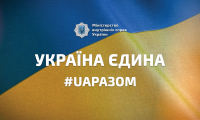
Representatives of Kharkiv National University of Internal Affairs took part in the online working meeting on the development of tools for monitoring hateful expressions, organized by the United Nations Human Rights Monitoring Mission in Ukraine (Kharkiv Office).
Oksana Tsukan, Advisor to the Rector of KhNUIA, Olena Ustymenko, Head of the Department of International Cooperation, Oleksii Rvachov, Senior Lecturer of the Department of Information Processing Technology and Cybersecurity of the Faculty No. 4, cadets and master students of the University took an active part in the discussion of the use of hateful expressions in society, and most of all on the Internet.
Hateful expressions are any kind of communication in oral, written or behavioral form that is hostile or uses derogatory or discriminatory language against any person or group of persons based on who they are, or, in other words, based on their religion, ethnicity, nationality, race, color, social origin, gender, gender identity, political affiliation and other factors of identity.
The use of hateful expressions often leads to discrimination, hostility between individuals or groups, and even incites violence based on hatred. In this regard, international law explicitly prohibits hateful expressions that cross the threshold of incitement to discrimination, hostility and violence.
At the beginning of the meeting, representatives of the University shared their experience of participating in projects on related topics. It was also noted that the University teaches students to identify hateful speech and how to respond to its use.
Krasimir Yankov and Serhii Shtukarin from the Kharkiv office of the UN Human Rights Monitoring Mission in Ukraine presented the UN Strategy for Combating Hateful Expressions and developments to monitor such expressions, as well as violence based on hatred in Ukraine.
The participants of the discussion took an active part in the brainstorm concerning the list of identity factors and categories of persons against whom hateful expressions can be directed.
During the meeting, the possibilities and feasibility of the development of specialized software - chatbots for popular web-based messengers to receive information from concerned citizens about the facts of hateful expressions used by them were discussed.
Meeting attendees were invited to join the work on monitoring hateful expressions, in particular, to identify lexical forms (words and phrases) that can be used for hateful expressions and incidents of such speech. Terms and expressions that are offensive and discriminatory, potentially inciting violence based on hatred in Ukraine can be reported to the working group by filling out an electronic form at the link https://bit.ly/hatelexicon.
The revealed cases of hateful expressions usage, violence based on hatred in Ukraine can be reported by filling an electronic form at the link http://bit.ly/hatemonitor.
The Department of Public Relations of KhNUIA